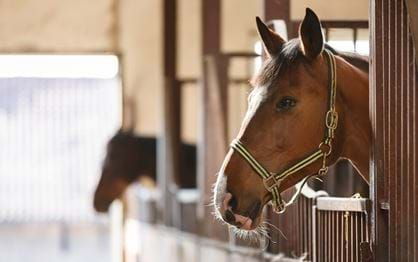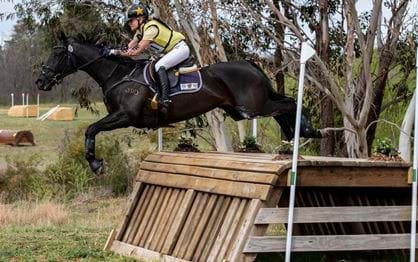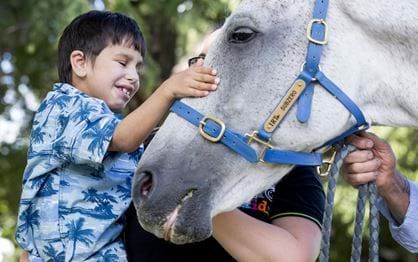
From track to field
When racehorses retire from the turf, there are many more options for them post-retirement. Polo is one of them, which can extend their careers a decade or more.
AFL supremo Gillon McLachlan, along with brother Hamish, are known as polo aficionados, while the game has long been known as a preferred sport of the Packers, one of the country's best-known business families.
But the sport itself is enjoying growth as more horse lovers see in it the potential for an involvement where they have an active role.
Polo is also a sport where ex-racehorses excel. Through Racing Victoria's Off The Track program, it provides an alternative life for many retired racehorses once they have finished their racing career – however long that might be.
Heleni Goodman, who is secretary of the Victorian Polo Association, says ex-racehorses really shine when they are switched to the polo field.
“Off The Track horses are very popular in polo and they probably make up at least 50 per cent of the horses that operate in Victoria,” she states. “We have got about 110 adult members (of the association) and most of those would be riding Off The Track horses.”
So what is it that polo players like so much about ex-racehorses?
“They are fantastic polo ponies. They are fast and agile, and they are also competitive and have great temperaments.
A lot of the horses we get might have had some setbacks or niggles that have stopped them racing, or they might have done one or two races and shown they might not be quite up to it. Polo flies more under the radar. - Heleni Goodman.
“They can maybe have a year off if they finish racing at a relatively young age, and begin their polo careers after a break. There are no page turners or superstars. A lot of the horses we get might have had some setbacks or niggles that have stopped them racing, or they might have done one or two races and shown they might not be quite up to it. Polo flies more under the radar.”
The age at which horses become polo ponies is also important. Leave it too late, and they might struggle to adapt.
“If they have been successful and they have long careers on the track, until seven or eight, they might be getting a bit old to switch disciplines and be trained for polo,” Goodman explains.
“For a pony, it takes three to four seasons to get to the top level. We do have some older ones who come into the sport, but they are rare.”
Sam Gairdner is a top Victorian player and is also heavily involved in training and preparing ex-racehorses for the new discipline.
He says that virtually all the top polo horses are thoroughbreds – in contrast to eventers or show jumpers, where the top performers are equally likely to be warmbloods.
“I work closely with Racing Victoria and the Off The Track program. I would have about 60 horses in work at the moment and probably 50 of them are Off The Track horses. I have retrained about 250 in the last 20 years,” says the Victorian-based Englishman who plays as well as prepares horses for others to ride or to buy.
He says there is plenty of crossover between the racing industry and the polo sector.
“We deal with a lot of owners and trainers when we are looking to source new horses. It's better to get them at three, four or five. It can take three years to train a thoroughbred to become a good polo pony, but then you should have them for competition until they are at least 18. There are plenty of polo ponies in their twenties.”
The expense where polo is concerned is the sheer number of horses required.
“You can’t play polo with just one horse. You need four to be competitive in the lower levels and five to be competitive at a higher level,” Goodman says.
“They only do seven-and-a-half minutes of playing time (per chukka) and they can only be on the field for 15 minutes. It's a very fast game. The quarter horses don’t have the top end speed that we require, but the thoroughbreds do.”
Gairdner says he is looking to bring the two sports closer together by organising events during the year at which previous owners and trainers can come along and see their former charges in action in their new career. “It can be a whole-life relationship. A polo career post-racing gives them an opportunity to have a long and extended competitive life, and those who were involved in one phase of that might be interested in seeing them in another.”


